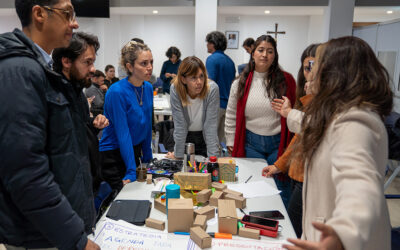In carrying out his extraordinary mission, the Apostle Paul conducted his life in a particular way: he strove to become all things to all people. In fact, he tried to understand everyone, enter into the mentality of each person: to be a Jew with the Jews, and with the non-Jews – those without a law revealed by God – to be as one without the law.
Paul followed the Jewish customs whenever this served to remove barriers or to reconcile souls; but when he worked in the Greco-Roman world, he adopted the culture and way of life of that world. He wrote:
«To the weak I became weak, to win over the weak. I have become all things to all, to save at least some at any cost.»
But who were the weak?
They were Christians who, because of their fragile conscience and limited knowledge, were easily scandalized. For example, there was the question of whether or not Christians could eat the meat of animals sacrificed to idols. Paul, knowing that there is only one God, understood that if other gods do not exist, there is no problem in eating meat sacrificed to these gods. But the “weak,” accustomed as they were to reasoning in a certain way and lacking instruction, could have come to the opposite conclusion and been confused. And so Paul put himself in the situation of these Christians, and being sensitive to their weak understanding, he decided that in order to avoid troubling their consciences, it would be advisable not to eat such meat.
«To the weak I became weak, to win over the weak. I have become all things to all, to save at least some at any cost.»
But what prompted Paul to act in this way?
Even in the liberating reality of Christianity that he announced, Paul recognized the need – or rather, the imperative – to become the slave of someone: of his brothers and sisters, of each neighbor, because his model was the crucified Christ.
By becoming man, God drew close to every human being, but on the cross, he proved his solidarity with each of us sinners, with our weaknesses, our sufferings, our anguish, our ignorance, our questions, our burdens, our moments of feeling abandoned.
Paul, too, wanted to live this way, and he declared:
«To the weak I became weak, to win over the weak. I have become all things to all, to save at least some at any cost.»
How, then, can we too live this new Word of Life?
We know that the purpose of our life and of each new day is to reach God – and not alone, but with our brothers and sisters. In fact, we also, as Christians, have received a call from God similar to the one received by Paul. Like the Apostle, we too must “save” someone, must “save some at any cost.”
Chiara Lubich




0 Comments